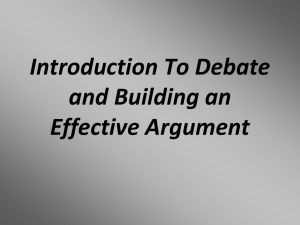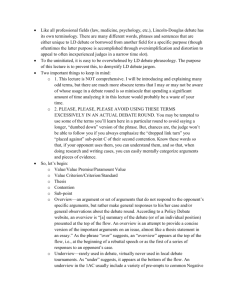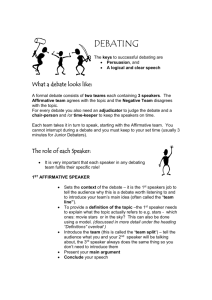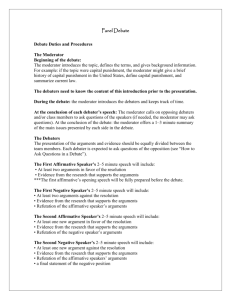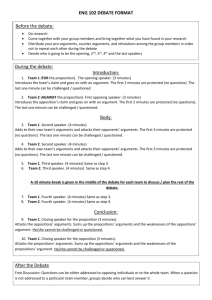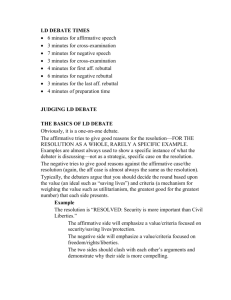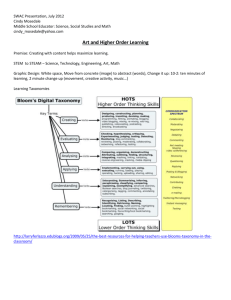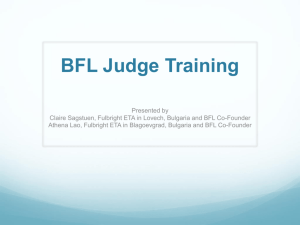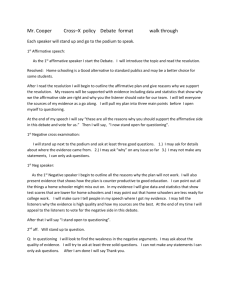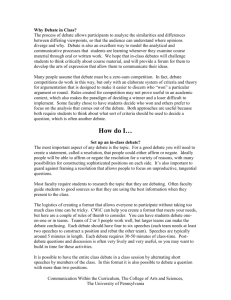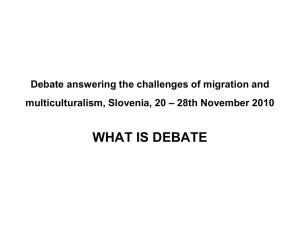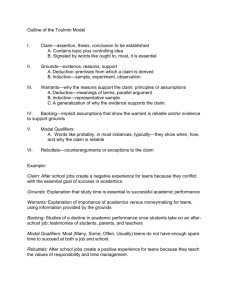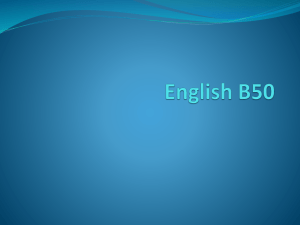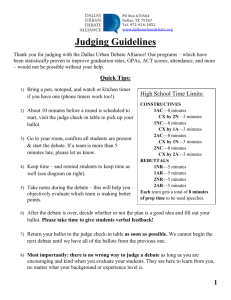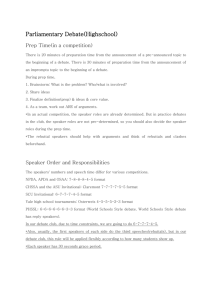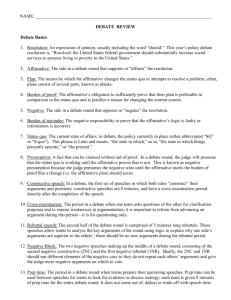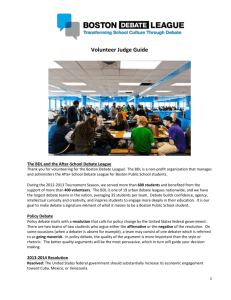Debates
advertisement
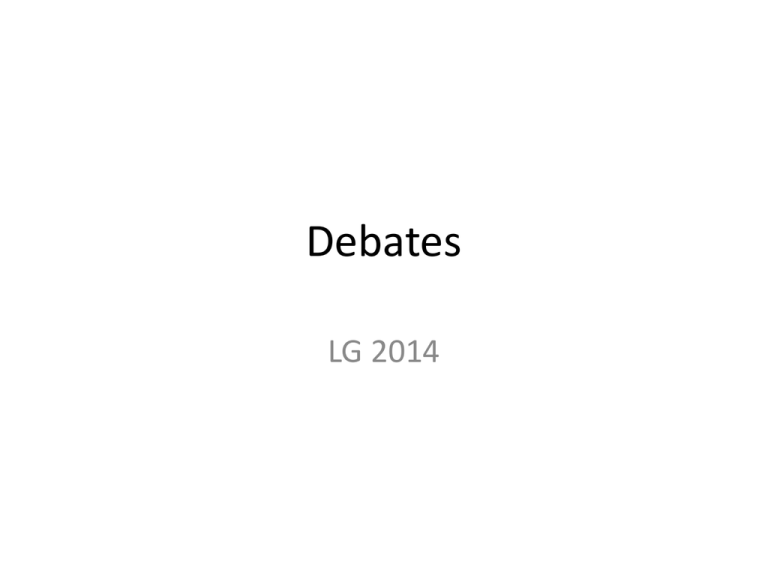
Debates LG 2014 What’s a debate? • A debate is a verbal contest in which two opposing teams make speeches to support their own arguments and ”knock down” the opposing team’s arguments. • The team that makes the ”best case” for its side wins the debate. • In our case the topics will be assigned. (controlled arguments) Why have debates? • Debates help you (ESL students) develop important skills. These include: - The ability to practise reading, writing and listening skills. - Development of argumentation skills (a good strong case built on a solid foundation) - Experience in persuasive writing and speaking Sample debates: • Watch on You Tube ”sample debates” eg. - www.youtube.com/watch?v=Mi_CSGZqOCM Terms you need to know • RESOLUTION -> The opinion of which two teams argue - Example: Cigarette smoking should be banned in all public places. • Affirmative team -> The team that agrees with the resolution • Negative team -> The team that disagrees • Rebuttal -> Explanation of why one team disagrees with the other. • Judge -> a person/people who decide the winner. Resolution • A resolution is an opinion about which there can be VALID disagreement. (not ” the sun will rise in the east tomorrow”.) NO argument! Compare with cigarettes • Debates are assigned to a team that either argues ”for” or ”against”the resolution regardless of what they personally believe. • Compare with lawyers Resolution 2 • In stating his/her position, the speaker must also support his position with reason. It won’t do with: I believe smoking should be banned because I don’t like smoking. (opinion) - Instead: I believe that smoking should be banned in public places because second hand smoke is harmful for non-smokers. (reason) - The speaker must then go on to elaborate on his/her reasons. Reasons • In a debate you want to use the strongest reasons possible. • What are the qualities of a STRONG reasoning? Reasons (discuss) • Smoking should be banned in public places because: a) It is bad b) It gives people bad breath and makes their teeth yellow. c) Second-hand smoke is harmful for nonsmokers • Smoking should be banned in public places because: a) It is bad (weak: define bad....) b) It gives people bad breath and makes their teeth yellow. (an OK argument, but affecting only one person) c) Second-hand smoke is harmful for nonsmokers (proven fact) Exercise • Come up with 1 STRONG reason for each of the following resolutions: 1. Women should quit their jobs after they get married. 2. Love is more important than money. 3. It is better to be married than single. 4. Writing by hand is better than writing by computer. Types of reasons • Examples: From your own experience or from what you´ve read. - Breating second-hand smoke in a public place is unpleasant. I have had to leave parties because my eyes stung so badly. • Common sense: Things you believe everyone knows - Smoking causes cancer and many other serious diseases. Types of reasons 2 • Expert opinions – These come from research - Quoting experts who have done research or written papers on a subject is always persuasive. • Statistics – Numerical date. (if you use this in a debate you should say where the statistics come from). DEBATE STRUCTURE • You will be divided into teams. • Teams will be paired up for competition and be assigned resolutions. • You will all have your part in the argumentation, so write down your ”speech” DEBATE STRUCTURE 2 2 minute time limit • Speech 1: The first affirmative speaker introduces the topic and states the affirmative team´s first argument. • Speech 2: The first negative speaker states the first argument. • Speech 3: The second affirmative speaker states the second argument. • Speech 4: The second negative speaker states the second argument. DEBATE STRUCTURE 3 • 5-10 minute break for teams to form rebuttals. NOTE: Listen carefully to what the other team is saying so that you can properly rebut their reasoning. • Speech 5: The negative team states two rebuttals for the affirmative team´s two arguments and summarizes its own two reasons. • Speech 6: The affirmative team states two rebuttals for the negative team´s two arguments and summarizes its two reasons. • Brainstorm and prepare what to argue. Write down numerous arguments, at least two each. • Compare notes and choose the best two. • Also, brainstorm opponents´possible arguments and compose 3 short rebuttals.

